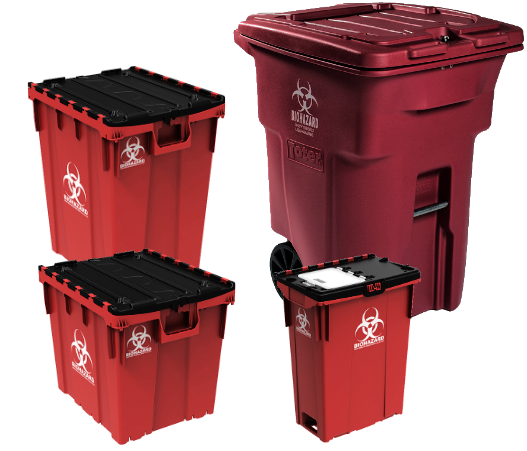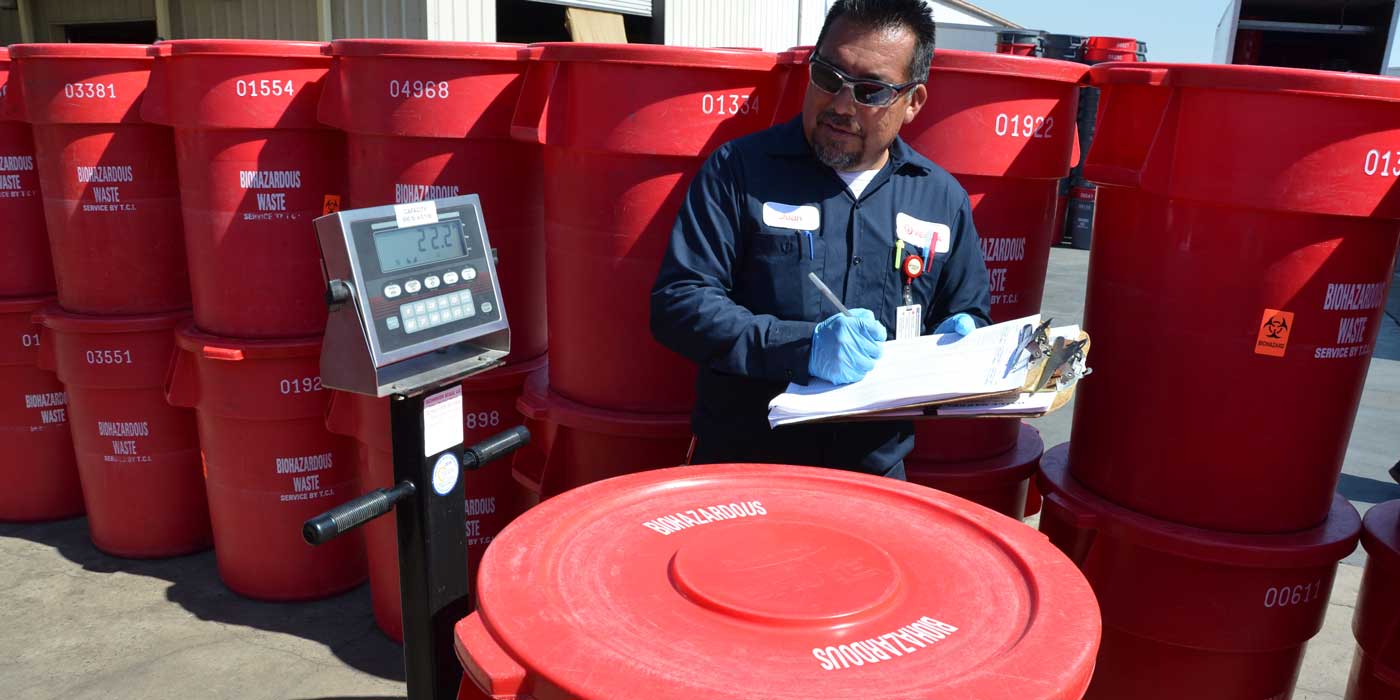Experience Released: Mastering the Art of Medical Waste Removal for Health Facilities
Experience Released: Mastering the Art of Medical Waste Removal for Health Facilities
Blog Article
Understanding the Different Kinds Of Waste Disposal Techniques
In the realm of waste monitoring, the selection of disposal strategies readily available today is vast and varied, each technique serving a distinct purpose in attending to the difficulty of waste disposal. click here. From recycling methods that intend to offer new life to materials, to the complex procedures of dangerous waste administration, the landscape of waste disposal is complex yet important for environmental sustainability. Recognizing the nuances of these various strategies not just clarifies the significance of accountable waste administration yet likewise triggers us to rethink our technique towards garbage disposal in a quickly evolving globe

Recycling Approaches
Reusing techniques are important for sustainable waste monitoring methods in both residential and industrial settings. medical waste removal near me. By carrying out efficient recycling strategies, a significant quantity of waste can be diverted from land fills, saving natural deposits and lowering the environmental effect of manufacturing procedures
In household areas, curbside recycling programs play a crucial function in encouraging households to different recyclable products from basic waste. Products such as paper, plastics, glass, and steels can be arranged and gathered for processing into brand-new products, decreasing the demand for basic materials and energy-intensive manufacturing procedures.
Industrial facilities additionally rely upon reusing approaches to minimize waste generation and advertise a round economic climate. By applying closed-loop systems, organizations can reuse materials within their production procedures, reducing expenses and environmental impact. medical waste removal. Additionally, industrial recycling programs usually include collaborations with specialized recycling centers to ensure that materials are effectively arranged, refined, and reintegrated right into the supply chain
Composting Strategies

Oxygenated fixed pile composting includes blending natural waste products in a big pile and consistently transforming it to ensure proper aeration. This technique is well-suited for smaller-scale procedures and households.
In-vessel composting includes putting natural waste in a shut container with regulated problems for temperature level and aeration. This method works for managing food waste in city areas. Windrow composting consists of forming long rows of natural waste and regularly turning them to advertise disintegration. This technique is typically used in agricultural setups.
Garbage Dump Disposal
Garbage dump disposal is a frequently used method for handling waste that can not be reused or composted. Methane gas, a by-product of breaking down natural waste in garbage dumps, is typically collected and utilized as a resource of sustainable energy. Initiatives to minimize dependence on garbage dumps consist of promoting waste decrease, reusing, and discovering alternate waste disposal techniques to lessen the environmental impact connected with traditional garbage dump disposal methods.

Waste-to-Energy Incineration
Incineration of waste for energy generation is a method increasingly being thought about as an alternative to conventional garbage dump disposal methods. Waste-to-energy incineration involves the combustion of waste products at heats, typically in specialized facilities developed to produce electricity or warm with the process - click here. This technique not only reduces the quantity of waste that would or else be predestined for land fills but likewise utilizes the heat created during incineration to create energy
Among the vital benefits of waste-to-energy incineration is its ability to produce electrical power while reducing the environmental impact compared to conventional garbage dump disposal methods. By converting waste right into energy, this method helps in minimizing greenhouse gas discharges and dependence on fossil gas for power generation. Furthermore, waste-to-energy centers are geared up with sophisticated air contamination control modern technologies to reduce potential toxic wastes released during the combustion procedure.
Hazardous Waste Administration

Taking into consideration the important significance of liable waste monitoring practices, specifically in the world of environmental sustainability, the emphasis currently changes in the direction of the complex domain name of Contaminated materials Management. Contaminated materials presents significant threats to both human wellness and the environment, requiring specific handling and disposal techniques. Common instances of dangerous waste include chemicals, batteries, pesticides, and electronic waste.
Hazardous Waste Management entails the recognition, collection, transportation, therapy, and disposal of materials regarded possibly unsafe or harmful. This procedure needs adherence to strict laws and standards to minimize unfavorable effect on environments and public health and wellness. Various methods are utilized in handling contaminated materials, consisting of recycling, safe landfills, encapsulation, and chemical treatment.
Appropriate Contaminated Materials Monitoring is vital for protecting against contamination of soil, water sources, and air pollution. It is important for industries, labs, health care facilities, and various other generators of contaminated materials to apply durable administration methods, training programs, and emergency situation response intends to make sure the safe handling and disposal of these materials. Failure to manage contaminated materials properly can have far-ranging repercussions, underscoring the significance of thorough and responsible methods in this area.
Final Thought
To conclude, waste disposal techniques play a crucial role in managing and minimizing the effect of waste on the atmosphere. From reusing and composting to landfill disposal and waste-to-energy incineration, each approach has its own advantages and restrictions. Appropriate administration of contaminated materials is likewise necessary to safeguard public health and the atmosphere. It is necessary for industries and individuals to comprehend the different garbage check my site disposal strategies readily available and select the most appropriate approach for sustainable waste administration.
In the world of waste management, the array of disposal techniques offered today is vast and varied, each approach serving a distinct purpose in attending to the difficulty of waste disposal. click here. From recycling methods that aim to provide new life to products, to the detailed processes of dangerous waste management, the landscape of waste disposal is complex yet crucial for ecological sustainability. Understanding the subtleties of these various techniques not just loses light on the relevance of responsible waste management however also motivates us to reconsider our approach in the direction of waste disposal in a rapidly advancing world
Initiatives to lower reliance on garbage dumps consist of advertising waste decrease, recycling, and checking out alternative waste disposal techniques to reduce the environmental impact linked with typical landfill disposal practices.
It is crucial for individuals and markets to comprehend the different waste disposal methods readily available and pick the most ideal method for lasting waste management.
Report this page